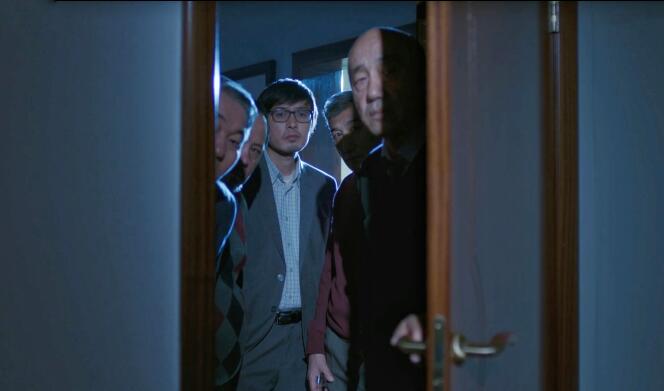Darezhan Omirbaev, director of “The Poet”: “The art of cinema is slowly disappearing”


Jean-Luc Godard called it “Kazakh Bresson”. 64-year-old Darezhan Omirbaev is a rare film director, the author of ten films in thirty years. He trained at VGIK, a prestigious film school in Moscow, then distinguished himself with his first feature film, Kairat (1992), who leaves Locarno with a silver leopard. The man is like his films: not very talkative, the weight of the slightest word, a melancholic view of the world and his profession. After moving Tolstoy (Shugaaccording to Anna Karenina, 2007) and Dostoyevsky (Studentaccording to Crime and Punishment2012) returns to modern Kazakhstan poetA more modest-looking film – a few days in the life of a poet – which nevertheless raises an essential question: what benefit can poetry still have in our desperate prose world, mined in the cult of commodities?
Where did you get the idea for this film about the disappearance of poetry?
The idea comes from a short story by Hermann Hesse. Autorenaband (Author’s evening). He recounted his experience as a visiting writer in a small provincial town to give a public reading to which no one came. This problem of meeting the public has always existed, it just appears today in an even more acute way. I could have taken a musician or a director as a character, but I chose a poet, moreover, one who speaks Kazakh. Because dissatisfaction with literature is related to the fact that the world’s “small languages” are being undermined and that more and more of them are disappearing every day.
The most powerful image of the film is, in fact, the empty room that awaits the young poet as if disappointed. Isn’t the state of auteur cinema crystallizing more broadly?
Cinema as an industry is currently doing very well and is finding a new outlet in the proliferation of screens. But it is the art of cinema, the “cinematograph” as Robert Bresson called it, that is gradually being neglected and is slowly disappearing. There are many very good films being made in the world today, but very few are cinematic.
One of the paradoxes of Didard, the poet, is to continue writing in a world where communication is mainly through images. Why do you, as a filmmaker, pay so much attention to these screens, which you sometimes shoot for a long time?
Simply because they are everywhere in our daily lives, it would be strange to evacuate them. All these little gadgets are the first signs of our time, even before cars. And if we wonder what people watch on these gadgets, the film then reaches another level, as if it suddenly taps into society’s unconscious. That is why I reserve certain paths in the hero’s dreams that open up to the mysteries of creation and in this wandering zone of the mind where poetic images are formed.
Source: Le Monde
Leave a Reply